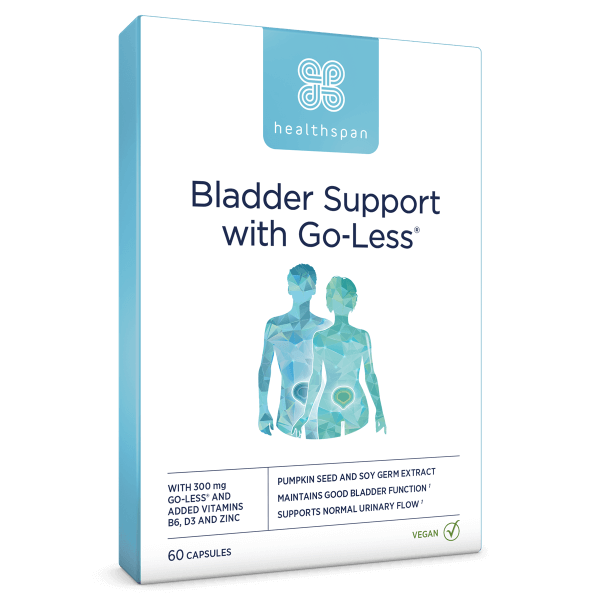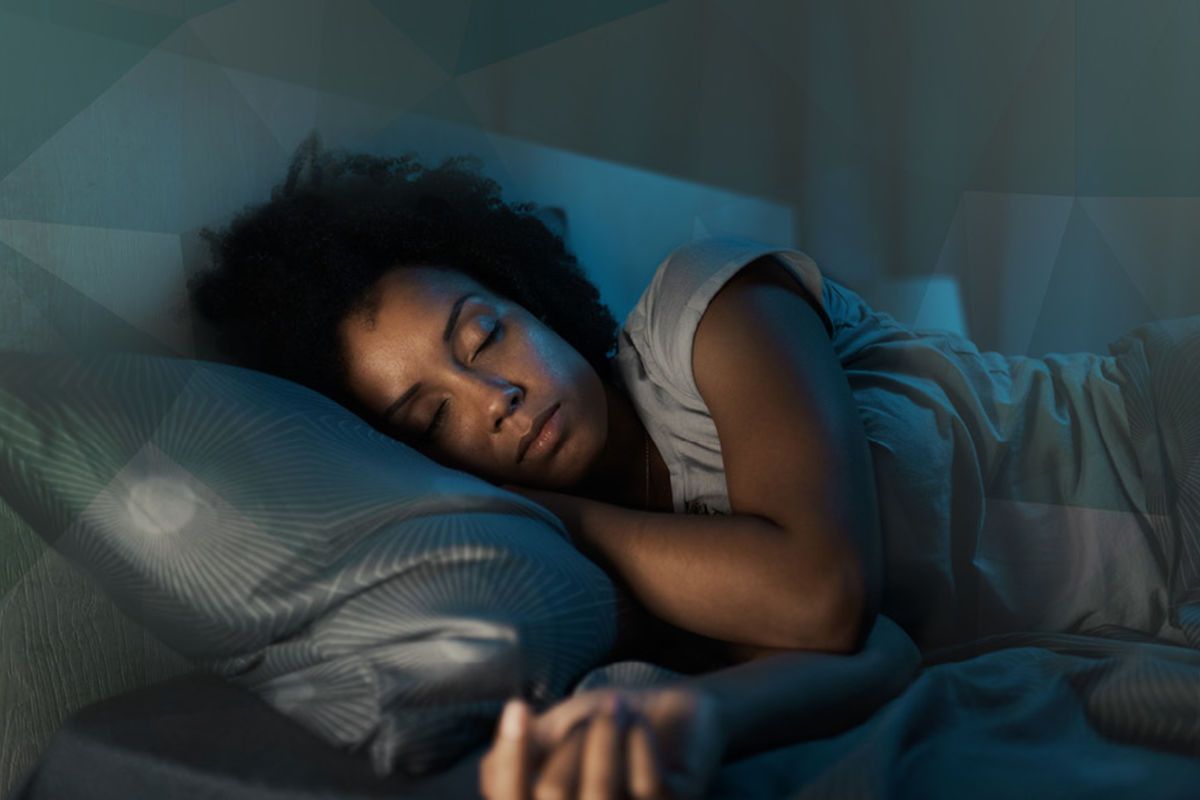Jane Collins outlines the most common bladder problems that can affect women, along with the best ways to manage them and improve your urinary health.
Urinary and bladder health does not seem to get the attention it deserves, particularly considering that a million people in the UK have urinary incontinence and half of all women will develop a urinary tract infection at least once, according to figures from The Urology Foundation.
These conditions can worsen for women after childbirth, the menopause and with age, but sadly are often dismissed as a bit of a joke. They can, however, severely affect your quality of life, and the fact remains that many women are either too embarrassed to seek help or think the problem will just sort itself out.
With this in mind, here is an outline of the most common problems, along with advice on how to manage these conditions and improve your overall urinary health.
Stress incontinence
This is something that has been experienced by most women at some point in their life. It happens when physical movement or activity like laughing, sneezing, coughing, jumping on a trampoline or other vigorous exercise or heavy lifting puts your bladder under pressure, causing you to leak urine unintentionally.
It is usually caused by the weakening or damaging of the muscles used to control urination, such as the pelvic floor muscles and the urethral sphincter.
Urge incontinence
Otherwise known as overactive bladder (OAB), this is when you leak a bit of urine as you feel a sudden and ultra-urgent need to urinate. It's often just a matter of seconds between being desperate for a pee and the release of urine. It can be the result of an infection, something blocking urine from being able to leave the bladder, inflammation of the bladder, bladder stones or the result of nerve or brain conditions like MS or a stroke.
Overflow incontinence
This is when you have the urge to urinate, but can only release a small amount. Since you can't empty your bladder fully, it can then become too full, leading to some urine leakage.
This condition can be due to weak bladder muscles (which are unable to squeeze the bladder efficiently) or some sort of blockage of the urethra (the tube that carries urine from the bladder to outside the body.)
Functional incontinence
Functional incontinence is when you are unable to hold your bladder for long enough to get to the toilet in time. This might be because you are ill and couldn't walk there on your own. It can be caused by weak bladder muscles, overactive bladder muscles, weak pelvic floor muscles or damage to the nerves that control the bladder, due to conditions such as diabetes, MS or Parkinson's disease.
Nocturia
This is the medical term for having to get up two or three times (or more) a night for the toilet. It affects two thirds of adults over 65. Nocturia can be caused by lifestyle habits, or it can be a sign of an underlying health condition such as an overactive bladder, bladder prolapse or a Urinary Tract Infection (UTI) like cystitis.
Nocturia can also be common during pregnancy, when the growing womb presses against the bladder. It also tends to be more common during menopause, when pelvic floor muscles (along with other muscles) tend to become weaker. It might also be a side effect of taking some medications – particularly diuretics, often prescribed for high blood pressure.

Bladder Support with Go-Less®
For good bladder health and urinary flow
- Contains 300mg Go-Less® pumpkin seed and soy germ extract
- Vitamins B6 and D3 for hormonal balance and muscle support
- Suitable for men and women
Nocturia: how to stop frequent urination at night
Nocturia can significantly disrupt sleep, with a knock-on effect on quality of life. Fortunately there are ways to help manage the condition.
Read more
Urinary Tract Infections (UTIs)
UTIs are infections that affect the urinary tract, including the bladder (cystitis), urethra (urethritis) or kidneys (kidney infection). A UTI develops when microbes, mainly bacteria, enter the urinary tract, causing the infection. These sometimes clear up with lifestyle measures like drinking plenty of fluids, adding bicarbonate of soda to water (to reduce the acidity in your urine) and/or taking supplements (see below), but if it doesn't improve antibiotics may be needed to treat it.
Interstitial Cystitis
Sometimes referred to as bladder pain syndrome, this is a condition said to affect 400,000 people in the UK, 90% of whom are women. It is characterised by pain and pressure in the bladder area, causing an urgent need to urinate very often (up to 60 times a day), accompanied by pelvic pain.
The cause is largely unknown, but symptoms are known to flare up and/or be triggered by factors including stress, sex, having a UTI, holding your urine in for too long, being dehydrated, taking certain medications (including some antidepressants and sinus medication), wearing tight underwear or trousers and pushing or lifting heavy objects.
Bladder issues after pregnancy are common, and it's estimated that one in three women who have given birth will have urine leakage at some point. Many new mums suffer initially with stress incontinence when they cough, laugh or sneeze, as the bladder continues to lose muscle in the postpartum period. This is generally caused by temporary nerve problems or swelling following delivery of the baby.
There is also a small risk of post-pregnancy bladder prolapse, due to weakness in the pelvic floor support structures. This weakness means that one or more of the pelvic organs (bladder, uterus and/or bowel) can move down into the walls of the vagina.
Find out more about post-pregnancy bladder problems.
How to improve bladder health
There are a range of things that can boost your bladder health, including:
Keep your weight down
Being overweight puts increased pressure on your bladder and pelvic floor muscles, making it more likely that you will experience bladder leakage. Research shows that losing weight can help to reduce urinary incontinence.
Exercise your pelvic floor muscles
Regularly working your pelvic floor by tightening and relaxing the muscles you use to hold your urine can help you achieve better bladder control. The NHS recommendation is to sit comfortably and squeeze and release your pelvic floor muscles 10-15 times daily. When you get used to doing this, try holding each squeeze for a few seconds.
Eat a bladder-friendly diet
Certain foods and drinks, including those containing artificial sweeteners, carbonated drinks, citrus fruits, spicy and tomato-based foods have been linked to urinary incontinence and found to exacerbate bladder problems such as interstitial cystitis. Having too much salt in your diet can also cause you to need the toilet more.
Empty your bladder fully
It might seem obvious, but if you don't empty your bladder fully and you tighten your muscles too soon when you are having a wee (something we can all be guilty of when we are in a hurry) the urine that hasn't had time to escape can head back up your bladder. This can then increase levels of bacteria in the bladder, which can lead to uncomfortable UTIs like cystitis.
Watch what you drink
If you are having to make a number of toilet trips at night, avoid drinking any fluids for a couple of hours before bed – particularly alcohol. Alcohol is a diuretic and is likely to increase your production of urine and make you pee more. It can also make existing bladder problems like overactive bladder worse.
Stop smoking
Bladder issues are more common among smokers, and research suggests that smoking can increase a woman's risk of bladder cancer by up to 50%. Heavy smokers also tend to cough more, which is also more likely to trigger urine leakage.
Keep a lid on the caffeine
Caffeine is also a diuretic, and when consumed in large amounts can potentially irritate the bladder. In one study women who drank around four cups of coffee a day were shown to have a 25% higher likelihood of urinary incontinence.
Read more about how to have a healthy bladder.
Bladder health and strength supplements
There is evidence to show that taking supplements can also help support your urinary health. These include:
Cranberry extract
Components in cranberries known as pro-anthocyanidins are thought to prevent bacteria from sticking to the bladder wall, and so reduce inflammation. Drinking cranberry juice or taking cranberry supplements is a well-known natural treatment.
One review found that cranberry juice and cranberry supplements reduced UTI recurrence in women by 26%. There is more evidence to show that cranberry extract supplements are more effective at reducing UTIs than the juice alone, because they are a more concentrated source of the active compounds thought to help treat UTIs.
Vitamin D
A recent study showed a clear connection between vitamin D and bladder health. Not getting enough of this vitamin has been linked to an overactive bladder, urinary incontinence and lower-urinary-tract symptoms.
D-mannose
This is a type of sugar found naturally in some fruits such as cranberries, apples and oranges, and has been used in supplement form to treat UTIs such as cystitis and interstitial cystitis. Research suggests that D-mannose can be as effective as an antibiotic in preventing UTIs.
Bladder Support with Go-Less
Bladder Support with Go-Less is a combination of pumpkin seed extract (Cucurbita pepo) and SoyLife, a source of soy isoflavones with added vitamin B6, vitamin D and zinc. This specially formulated supplement is designed to maintain good bladder function and urinary flow.
A clinical study involved 120 women aged 30-70 suffering from overactive bladder-related voiding dysfunction. The participants were given 500mg of Go-Less twice a day for three months. They showed a 31% decrease in urgency of urination, and a 31% decrease in the frequency of nocturia.
Magnesium
We know that this mineral has a muscle-relaxing effect that can help improve sleep, but it has also been shown to improve symptoms of incontinence by reducing muscle spasms. A small study from Tel Aviv University showed that women who took magnesium hydroxide supplements twice a day saw improvements in their bladder health.
Probiotics
Research suggests that some probiotics, especially those with strains from the Lactobacilli family, may help treat and prevent UTIs. It is thought that they do this by preventing harmful bacteria from attaching to urinary tract cells.

Bladder Support with Go-Less®
For good bladder health and urinary flow
- Contains 300mg Go-Less® pumpkin seed and soy germ extract
- Vitamins B6 and D3 for hormonal balance and muscle support
- Suitable for men and women








